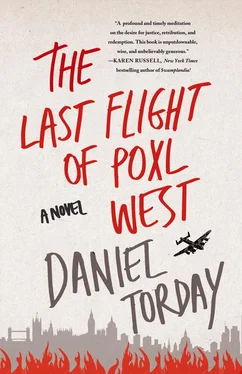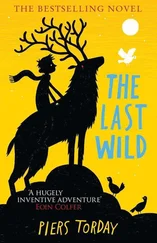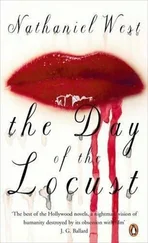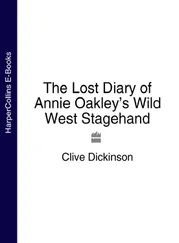I was so elated in that moment of being accepted to flight training I’d not given real thought to how Glynnis would take it. She looked up from the serum dripping through the line she was fixing and I saw that tears wet her face. A black ant was crawling around the green stalk behind that hollyhock bloom.
“Careful to fly well up there,” Glynnis said. The ant crawled around that hollyhock stalk. I couldn’t bear to look at it. I raised my eyes to the red blossom. “What will become of me down here? You in the air. Me underground with Mother.”
“You’ll go about your nursing,” I said. “London is safer now. Perhaps Mrs. Goldring will even come home.”
“That’s not what I mean,” she said.
I would be back on weekend leave when I could. I would write letters. For so long I’d known only that I longed to leave. That old muscle memory. Now in the moment of leaving it felt as if some space had opened up beneath my feet. I must plant them more firmly on the ground. With the carmine of that hollyhock and my elation I felt the immediacy of a desire for Glynnis I’d not felt in months.
“When I return,” I said, “we’ll talk of marriage.”
For the first time Glynnis’s eyes caught mine. Saline dripped in the intravenous line behind her. In my peripheral vision I saw the black ant crawl up until it achieved the very inside of that hollyhock blossom.
“I don’t know if I need that much,” Glynnis said. “Just.”
Then she reached up and pressed those kiln-hot cheeks against mine until they baked into kisses.
Acknowledgment: Second Interlude
After years of my peace-loving life, now I was fifteen years old and interested only in war. It was the spring of 1986, barely a decade since the end of Vietnam. That one — and Korea, too — were between us and what we understood to be the morally unambiguous days of World War II. Dovish was really the only mode for us then, Bostonian or otherwise. Teenage or otherwise.
I spent hours in the library at our public school looking for books about the British military and Eastern Europe during the war — books I read, books I thumbed through, all to fill the void Poxl West had now left in my life. Military histories by John Keegan that were too dry and martial to keep my teenage interest. Narratives by Elie Wiesel and Primo Levi that elicited only bile from me at the time. These books contained stories, but not the stories my uncle Poxl had to tell. Somehow even they, in their dour precision and moribund facts, couldn’t touch the tales of sexual impropriety and reckless aviation Poxl told. He hadn’t been forced into victimhood, didn’t need to be called survivor — he had flown his way right into the attack against that awful German force. More often than not I found myself flipping to the back to look at lists of names in their end pages: acknowledgments of relatives long dead, lists of names whose thick Ashkenazi sounds carried no meaning to me.
During that same time I found that the things that had once floated me on the weekdays between my outings with Poxl were somehow lacking in buoyancy in comparison with what little I could dredge up on his time at war. Now for the first time I had Poxl’s book — but not Poxl. The absence was almost tangible. As I sat and watched the best team the Bruins had fielded in years win game after game, even on the most perfect full-ice pass from Ray Bourque to Cam Neely, I could hardly get excited. My team appeared good enough to head for the Stanley Cup for the second year in a row, but my uncle Poxl wasn’t there to take me to the MFA or the opera, to distract me from the things I felt I loved more — so he distracted me from afar. He stole my concentration from anything that didn’t pertain to him with his absence and his successes. He’d promised to send me a copy of his book, signed, and I still didn’t have a copy personalized by him. He’d promised to take me down to New York City and show me something more, and I hadn’t yet seen it. For years he’d had me, but he hadn’t published the book he always longed to publish; now he’d published a book, and it was as if he’d flown from me, too. My football team had been to the Super Bowl, and even the prospect of a second championship for one of our town’s teams that year didn’t carry the same weight it once had. The Celtics, too, had fielded their strongest team in years, and the Red Sox, with Roger Clemens and Wade Boggs, seemed as if they might be bound for a World Series themselves. Never before were our teams so stacked with players: McHale and Parrish, Rice and Evans, Fryar and Marion.
All I wanted was my uncle Poxl back.
At the time this desire felt wholly natural. Thinking of it now, listening to my own wistful voice and how it ached at Poxl’s absence, it sounds like obsession.
Maybe it was.
But it carried with it the absence I would always feel of my grandfather, the one Poxl had come to fill here in town. Before I knew enough to know, Poxl West had been in my life. He’d chosen to be there, not because he was duty-bound, bound by blood. His attention to me was the conscious bestowal of a gift, one that was renewed every time we saw each other. There I was, fifteen — the gift had been given, and now it was not being given, at just the moment when its magnitude was revealed, clouds parting to display morning’s spidery light. Was this what Françoise had felt when he left? Glynnis? His own mother? I’d lost a grandfather before I knew what it meant to have one, but in his place I had what every Ashkenazi kid in America needed without knowing he needed it: a Jewish war hero, at my side. When Poxl was around, he did fill in for my missing grandfather. Now it was like I’d lost two grandfathers in one sweep of Poxl West’s international success. Does this sound like obsession? Do I lament looking back, magnifying what Poxl was then? I only know that’s how it felt at the time. And that if I’m honest, it’s how I feel decades later.
One afternoon amid the unexpected blanching that had overtaken my days during that period, my father decided he would take up Poxl’s absence and take me to Waltham, to a store called Mr. Big Toyland. The toy store advertised regularly on local television stations. My parents were friends with the owner’s daughter — my father had helped them out with an audit years before, so we were treated well there. We got a small jolt from watching their kids thumbing their way through the Cabbage Patch Kids and G.I. Joes on those TV commercials — Ellen and Joseph, who’d been at my Bar Mitzvah, up there on television, enjoying some local fame. We knew them, and there they were on television, between episodes of Diff’rent Strokes . Fame feels larger when you’re fifteen: It appears to be its own reward. I’m not sure what I wanted to be acknowledged for, what I did at the time that deserved attention, but the idea of being on television was mesmerizing.
In addition to toys, Mr. Big sold baseball cards, the best selection of old cards in town. My parents thought spending money on baseball cards was a kind of institutionalized insanity. Usually I had to beg my father to take me out there.
Today he’d offered unbidden.
On the way out we passed through the wealthy town where Larry Bird, the best player on the Celtics team, had bought a large house after being drafted. He was known to spend afternoons outside in his driveway shooting baskets. There was something intimate about it, its own gift, seeing through the window of a car what we normally had to see on the screen of our television sets. It could back traffic up for miles, drivers stopping to watch his mastery, the perfect shot executed by a man with mangled, broken fingers on each hand that somehow came together to make him the best shooter of his generation.
Читать дальше












